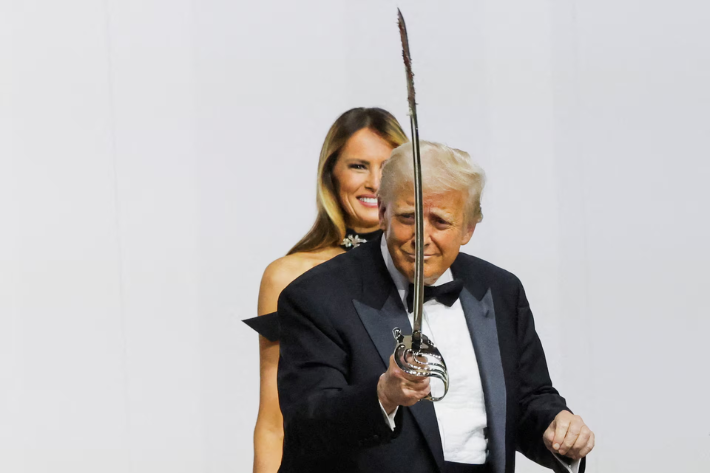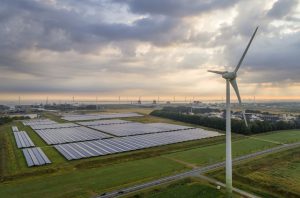Last year, as the United States intensified its clampdown on technology flows to and from China, the then US Commerce Secretary Gina Raimondo was often heard repeating two words: regional cooperation.
It meant consistent dialogue with the European Union on everything from stopping the influx of Chinese cars on Western roads to imposing wide-ranging export controls on the flows of advanced chips to Beijing.
It also meant using American federal funds to boost chip-related investments in resource-hungry Southeast Asian nations such as the Philippines and Vietnam, in an attempt to rival China’s manufacturing dominance.
That strategy worked well for the US.
Also on AF: China’s Cloud Providers, Chipmakers, Rush to Use DeepSeek AI
Its allies, such as the Netherlands, Japan and South Korea, began extending stricter restrictions on exports of advanced chips and chipmaking tools to Beijing.
A host of global businesses — especially chipmakers — also started ditching China to shift to Southeast Asian countries like Vietnam and Indonesia and escape US tensions.
Then, days after former President Joe Biden signed off on significant tariffs on Chinese solar panels and electric vehicles, the EU and Canada followed with their own severe levies.
“I think we all know that China is not playing by the same rules,” Canadian Prime Minister Justin Trudeau said as he announced 100% tariffs on imports of China-made EVs. “What is important about this is we’re doing it in alignment and in parallel with other economies around the world,” he added.
By the end of the year, the EU’s top foreign policy diplomat, Kaja Kallas, had accused China of “covertly using the economic clout that they have” against the bloc.
And then Donald Trump returned to the White House.
Canada’s crude oil shift
In a little more than two weeks as the chief of the world’s biggest economy, Trump has rattled America’s ties with almost every ally.
Last week he announced a whopping 25% tariff on all imports from the US’ neighbour and largest trading partner, Canada. And, although he postponed those tariffs in less than a day, Trump triggered a fundamental shift in relations between the two countries.
More than 90% of Canadians now want their country to rely less on the US, with some telling the UK’s national broadcaster BBC that something was “irrevocably broken now” in Canada-US ties.
The result? A potential solidification of Canada’s shifting crude oil exports to China.
Canada has, in the past, sold much of its crude oil solely to the US. But since the expansion of its Trans Mountain pipeline (TMX), “a large amount” of Canadian crude “is finding its way not to California’s refineries, but rather to China,” experts at the China Institute at the University of Alberta noted last month.
“Trump’s combative rhetoric” highlights the need “for Canada to diversify its energy export markets and strengthen its global economic resilience,” they further said.
Unsurprisingly, this week, Trans Mountain told Canada’s Global News it was expecting deliveries to Asia to increase amid Trump’s tariff threats. China is TMX’s single largest Asian oil buyer — accounting for more than 50% of all crude exports from the pipeline in just seven months last year.
EU looks for “mutual interest”
Meanwhile, America’s third-biggest trading partner — the European Union — finds itself between a rock and a hard place.
While campaigning for the election, Trump promised he would make the EU “pay a big price” for not buying enough American exports.
He reiterated this again last week as he announced those short-lived tariffs on Canada and Mexico.
Something “very substantial” was planned for tariffs on the European Union, he said, adding that the bloc was an “atrocity” on trade.
For an unnerved EU, that promise has led to calls for unity and an urgency to re-think priorities.
“If the US starts a trade war, then the one laughing at the side is China. We are very interlinked, we need America and America needs us as well,” top diplomat Kallas said, two days after Trump’s remarks.
A day later, EU’s trade chief Ursula von der Leyen — who once worked toe-to-toe with Raimondo to “de-risk” from China — said there was room to “find solutions” of mutual interest with Beijing.
Mutual interest shouldn’t be hard to find considering the EU remains dependant on Beijing for everything from telecom equipment to electrical machinery. The bloc imported $505 billion worth of Chinese goods in the twelve months to October last year.
Von der Leyen added that while the EU would keep “de-risking” its relationship with China, the two could “find agreements” that could further expand their trade and investment ties.
On Wednesday, China responded.
“China attaches great importance to its ties with the EU,” Beijing’s foreign ministry spokesperson Lin Jian said. “We hope the EU can become a cooperation partner that China can trust.”
- Vishakha Saxena
Also read:
China Hits Back Against US Firms, as Trade Tensions Heat Up
Economists Say Trump Won’t Hit China With 60% Tariffs Early On
China Seen Taking on More Debt to Counter Trump Tariffs
Trade Wars Would be ‘Catastrophic’ for World Economy: WTO
China’s Huawei, SMIC ‘to Ramp Up Production’ of Newest AI Chip
Huawei’s China-Made 7nm Chip ‘Years Behind US’, Raimondo Says
Japan Nears China Chip Curbs Deal With ‘Bad Cop, Very Bad Cop’ US
US Pressing Korean Chipmakers For More China Chip Curbs
US Push to Curb China Chip Tech Economically Motivated: ASML CEO
China Threatens to Cut Off ASML Over New US Chip Curbs
TSMC to Cut Off All Chinese AI Clients From Its Advanced Chips
























